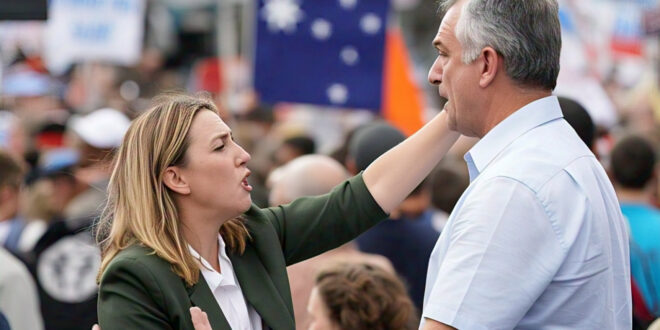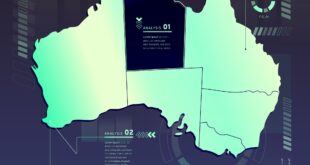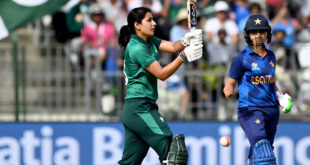The Liberal Party’s preselection process for the seat of Whitlam has taken a dramatic turn, showcasing the party’s internal struggles and the broader ideological battles within Australian politics.
On Sunday, the party ousted its candidate following revelations that he held outdated and exclusionary views on women serving in combat roles in the Australian Defence Force (ADF).
This move, however, has done little to quell controversy, as his replacement has stirred another round of debate by claiming that Australian schools are indoctrinating students with Marxist and woke ideologies.
The Ousting of a Candidate
The original Liberal candidate’s removal came after ,The Guardian Australia, revealed his belief that women should not serve in ADF combat roles. His stance, which runs counter to decades of progress in gender equality within the military, was widely condemned as regressive and out of step with contemporary Australian values.
The decision to drop him was seen as a necessary, albeit reactionary, move by the party to avoid further alienating voters, particularly women and younger demographics who increasingly demand gender inclusivity in all sectors.
A Controversial Replacement
However, the new candidate chosen to contest Whitlam has sparked fresh concerns.
The replacement, whose name has yet to be as widely scrutinized, previously asserted that Australian students are being “brainwashed” by Marxist and woke ideologies in schools.
This rhetoric aligns with broader conservative anxieties about progressive educational policies, yet it risks alienating moderate and progressive voters in an electorate that may not respond well to such claims.
The Broader Political Implications
The back-to-back controversies in Whitlam highlight key issues for the Liberal Party.
Firstly, it reflects an ongoing ideological tug-of-war within the party between traditional conservatives and those advocating for a more centrist, inclusive approach.
Secondly, it underscores the party’s difficulty in managing candidate vetting processes and responding to the shifting political landscape in Australia, where socially progressive values are gaining ground.
Will This Affect the Election Outcome?
Whitlam, a seat named after former Prime Minister Gough Whitlam, has historically leaned towards progressive politics.
The Labor Party currently holds the seat, and these internal Liberal controversies may further weaken the opposition’s chances of making electoral inroads.
Voters are increasingly scrutinizing not just policies but the values and statements of candidates, and this latest episode in Whitlam may serve as a cautionary tale for parties attempting to balance ideological purity with electoral viability.
The Liberal Party’s handling of its candidate selection in Whitlam is emblematic of a larger struggle over its identity and electoral strategy.
While removing a candidate for sexist remarks was a necessary step, the replacement’s inflammatory claims about education reveal that the party is still navigating a delicate balance between appealing to its conservative base and maintaining broader electability.
As the election approaches, it remains to be seen whether voters in Whitlam will respond favorably to the Liberal candidate’s stance or reject this ideological approach in favor of a more progressive alternative.
 Top Trends Blogs
Top Trends Blogs




